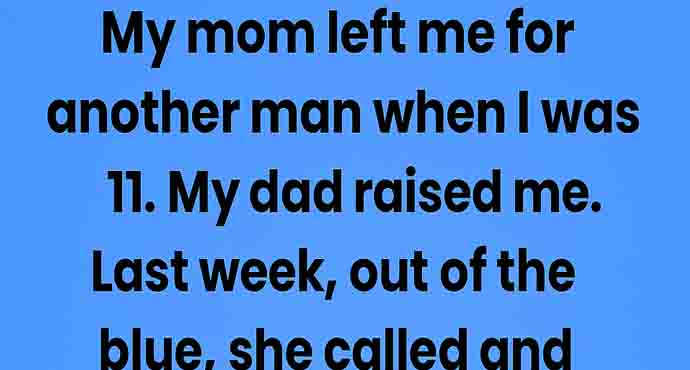Family ties can become quite complex, particularly if early abandonment causes long-lasting damage. One young woman talks of having to make a painful decision after her estranged mother returned to her life decades later, very sick, and requesting to re-enter her life. Her father was left to raise her alone after her mother departed when she was just 11 years old to pursue another romance. She was stabled by her father’s calm devotion, but having no mother left her with severe emotional scars.
She developed self-reliance and established a life characterized by autonomy and cautious boundaries. She thought she had dealt with her mother’s absence for years until one day, following the death of her father, she got a call that would test her in unexpected ways.
Now that she was ill and lonely, her mother wanted to get back in touch and return to the family home. Despite a range of feelings, including rage, incredulity, and lingering hurt, the daughter finally refused. “I wasn’t raised by you. She informed her mother, “You went out.” It was final, and it was the truth. Nothing could have eased the reality of the following day, when the police discovered her mother prostrate outside her door, sitting with her baggage, waiting for acceptance that would never come, despite her best efforts to prepare for the emotional repercussions.
She felt guilty, but she maintained her boundaries. revisiting that chapter would have meant revisiting wounds she had worked so hard to heal—she had grieved for her mother years ago. In a terrible flash of insight, self-preservation and compassion clashed. She understood that refusing was an act of survival, not cruelty. A challenging question is brought up by this tale: do kids have a moral duty to take care of their parents who abandoned them? The answer is complicated for many. The impulse to defend oneself might clash with the values of love, forgiveness, and accountability. Sometimes the bravest thing a person can do is to put peace and safety before duty. Despite being devastating, her choice was
brave. It demonstrated that emotional limits and self-respect are also manifestations of love—love for oneself. There aren’t always tidy solutions in life, and sometimes saying no—even when it hurts—is the most compassionate thing you can do.
